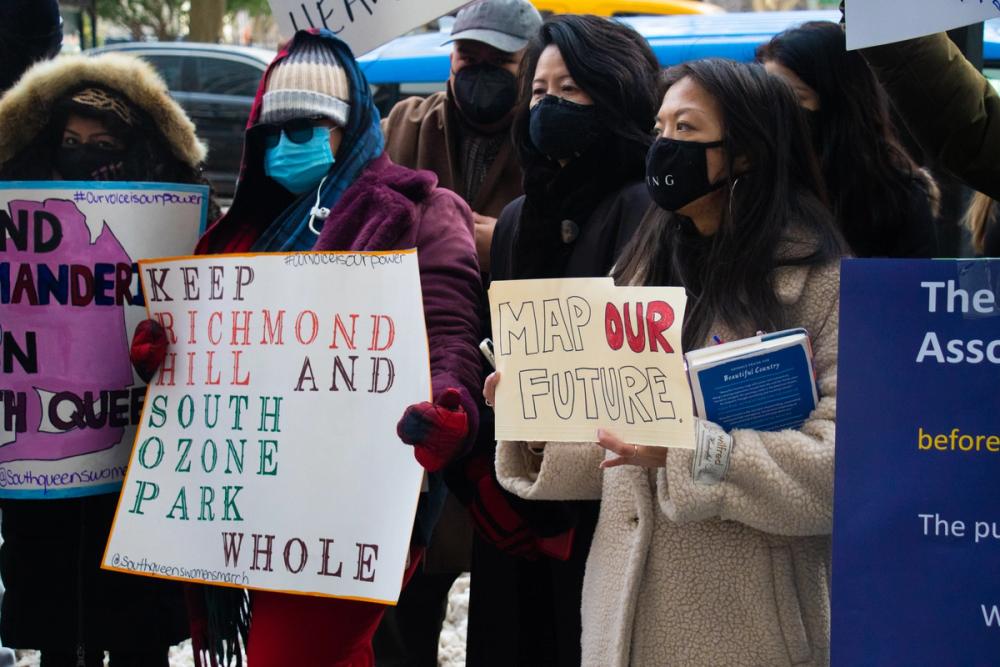Press Release
Oral arguments scheduled for May 2 in NYC Council redistricting case over Indo-Caribbean/South Asian neighborhood in Queens

NEW YORK, NY – Today, the Asian American Legal Defense and Education Fund (AALDEF), submitted a reply brief in its suit against the New York City Districting Commission, the New York City Board of Elections, and the New York State Board of Elections, challenging the lawfulness of the New York City Council district map under the New York City Charter. Oral arguments for the case have been scheduled next month for Thursday, May 2, 2024. Latham & Watkins serves as co-counsel with AALDEF.
“The lines that cut across Richmond Hill/South Ozone Park in the council map fracture our neighborhood and weaken our ability to vote for council members that truly represent us,” said Jagpreet Singh, political director of Desis Rising Up and Moving (DRUM), a plaintiff in the case. “But the truth is we are a diverse and united community, and next month, the court will hear from us and see that we are steadfast in our fight for equitable representation.”
The plaintiffs include the Queens-based community organization DRUM and 18 Indo-Caribbean and South Asian residents of Richmond Hill/South Ozone Park, Queens. The New York City Charter requires districting commissions to draw maps that ensure “the fair and effective representation of racial and language minorit[ies].” Despite these explicit protections, the plaintiffs contend that the City Council redistricting map diluted their voting power and unlawfully split their community between three different city council districts.
"For over thirty years, Richmond Hill/South Ozone Park has been the center of Indo-Caribbean and South Asian population growth in Queens. Yet illegal racial gerrymandering has undercut the community’s ability to have any meaningful impact on city politics, especially at the City Council level,” said Jerry Vattamala, director of AALDEF’s Democracy Program. “In the most recent redistricting cycle, the Districting Commission split the community into three separate city council districts without any legal justification. We cannot allow another election to go by with this illegal map in place, so today we continue to press our case before the First Department.”
Richmond Hill/South Ozone Park is home to diverse immigrant and native-born New Yorkers of Guyanese, Punjabi, Trinidadian, Surinamese, and Bengali descent. Yet, historically, this neighborhood has been divided up during redistricting processes, undermining the community’s ability to vote for candidates that represent them. In 2022, the NYC Redistricting Commission wrongfully drew a final redistricting map that further divided the community, drawing a line through the community’s main thoroughfare, Liberty Avenue. That map makes having a voice in city government even harder for this vibrant and cohesive community.
Read the full reply brief here.
###
For additional information, contact:
Stuart J. Sia
Communications Director
212.966.5932 x203
ssia@aaldef.org
